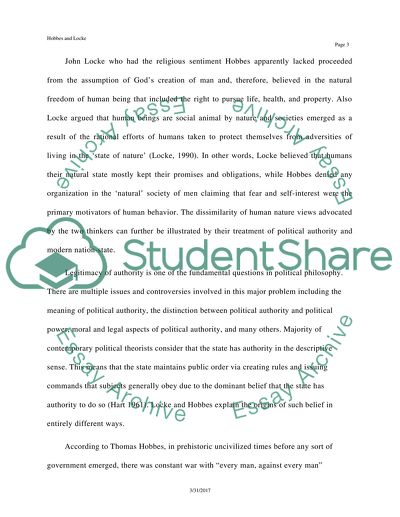Retrieved de https://studentshare.org/miscellaneous/1512139-compare-and-contrast-the-ideas-about-human-nature-in-two-theorists-hobbes-and-locke
https://studentshare.org/miscellaneous/1512139-compare-and-contrast-the-ideas-about-human-nature-in-two-theorists-hobbes-and-locke.


